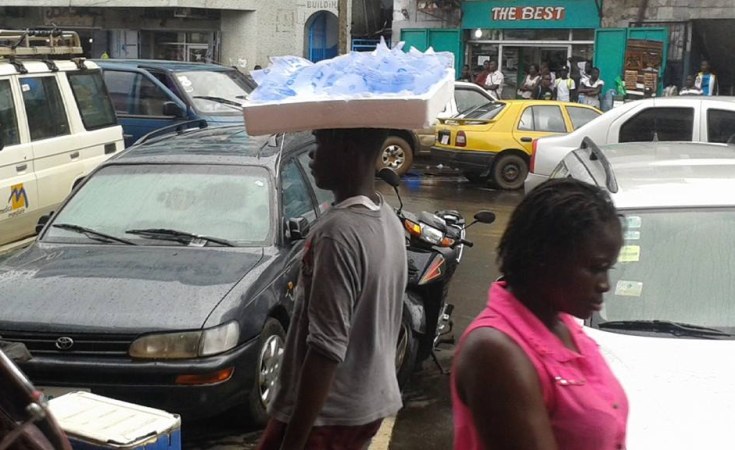Monrovia — U.S. Ambassador to Liberia Deborah Malac has called for the lifting of travel restriction on countries affected by the Ebola outbreak in west Africa.
Speaking to journalists in Liberia's capital, Ambassador Malac said the U.S. government has been urging countries and companies not to restrict air travels or close their borders, saying these actions are not backed by scientific evidence. "If you listen to the World Health Organization, if you listen to our Centers for Disease Control(CDC), there is no reason for those kinds of restrictions".
In the last few weeks, many airlines cancelled flights to Guinea, Sierra Leone and Liberia, the countries hardest hit by the deadly virus. Some major international aid groups have lamented
the difficulties of flying in much-needed assistance - including international health experts and protective clothing for local health workers who have been dying without it. Ships also have been bypassing Monrovia's port. Neighboring Cote d'Ivoire only recently rescinded a decision not to allow vessels from "contaminated" countries.
Malac emphasized that the United States still allows travelers in and out of the three countries. "Robust screening at the airports", which the ambassador said was now ongoing at Liberia's international airport, with CDC involvement, should mitigate risks to travelers.
She said the isolation is "not a positive development and we very much want to see that changed". Malac said her government will continue to dialogue with neighboring countries as well as countries that are "very far afield to see if we can get it lifted".
The Ambassador announced that CDC health experts have been sent to countries that are imposing travel restrictions to explain the science and modes of transmission of the disease to health minister, with a view of having the measures lifted.
Liberian President Ellen Johnson Sirleaf recently thanked her Ivorian counterpart President Alassane Ouattara for lifting the ban on ships from Liberia docking at Ivorian ports, although flight restrictions still remain. She also commended Senegal's Macky Sall, for agreeing to allow SN Brussels, one of only two international airlines still flying to Monrovia, to make "technical stops" in Dakar, so that the European carrier can comply with international regulations on crew changes and other rules.
Malac said that since the recognition of the spread of the disease in March, the United States has committed about U.S$21 million to the three most-affected countries She cited $1.7 million which has "just been announced" to provide food assistance for affected communities in Liberia. She said the Americans are also bringing in mobile labs to be deployed in different parts of the country.
The ambassador acknowledged that a lot could have been done earlier: "I don't think any of us quite realized the scope of what we were dealing with. This is the largest outbreak in history of this disease. We are serious in doing what we can from the U.S government side to address this..[but] we need the government of Liberia; we need the people of Liberia; we need WHO (the World Health Organization); we need all the other international partners out there, because this is a global issue.
"It's not just a Liberia issue," she said, "It's something that we all need to confront".


